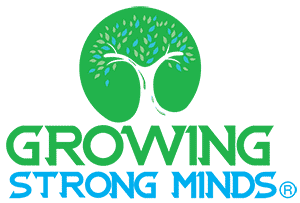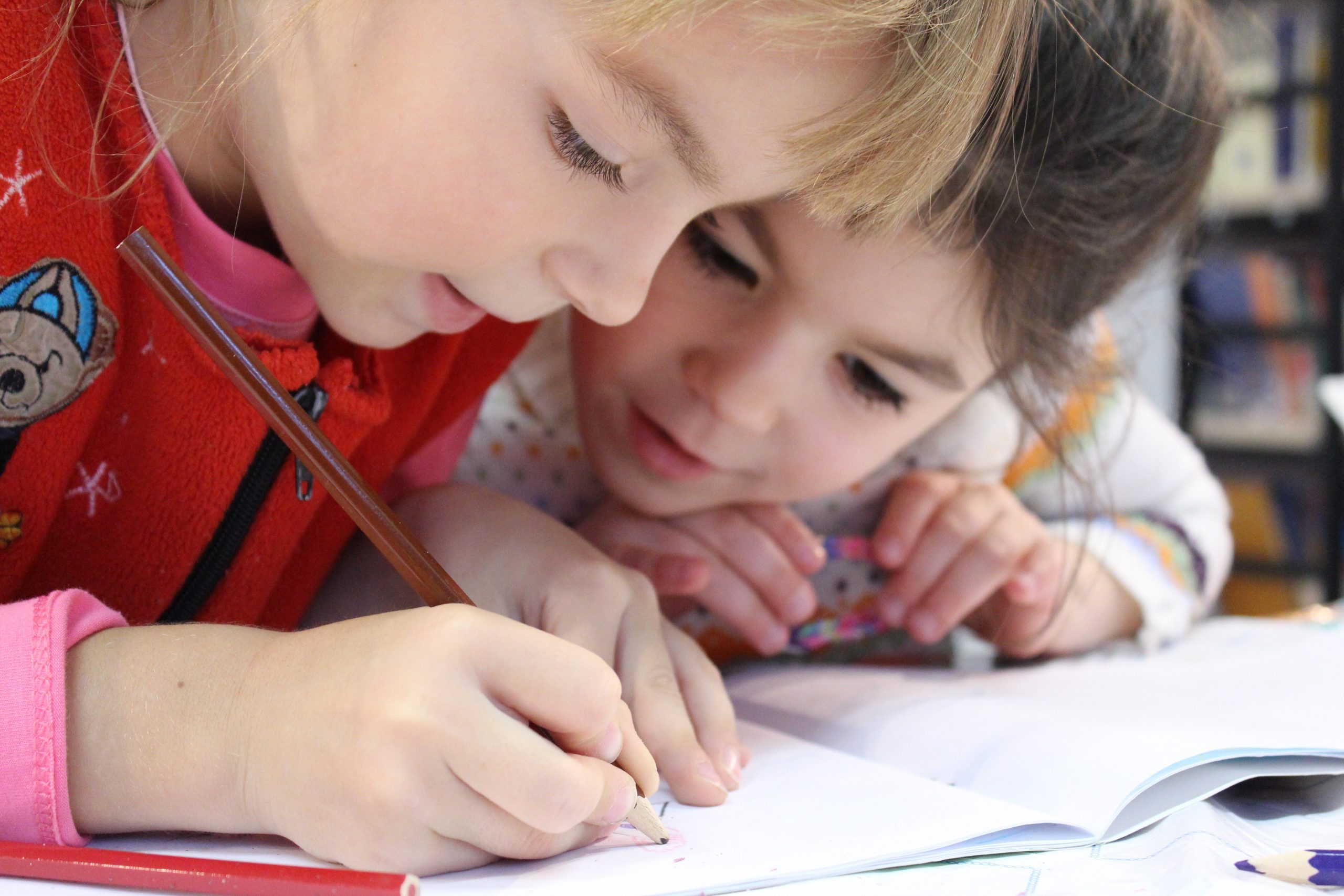
Strong Minds – Early Years
Fostering wellbeing and resilience in Early Childhood
STRONG MINDS EARLY YEARS $2000
Strong Minds – Early Years is a Positive Psychology package to enhance wellbeing and resilience for educators, children and their families. Specifically it focuses on developing a strength based approach utilising 24 scientifically validated character strengths. Strong Minds – Early Years supports the Five Learning Outcomes and Principles in Belonging, Being and Becoming: The Early Years Learning Framework for Australia and the National Quality Standard Areas. It is available throughout Australia.
Strong Minds – Early Years is an immersive learning initiative requiring educators to ‘live it’ prior to teaching it. This ensures the learning is absorbed and allows for authentic delivery to the children. It includes:
- 1.5 hour educator video workshop
- 8 week staff wellbeing plan
- 24 strength language guide to use with children
- Zoom support
- Extensive educator resources
- Family resources (including video content for centres to run an information session with parents)
- Kindness, Gratitude, Mindfulness and Growth Mindset resources
- 3 sets of 24 character strength posters, 3 sets of 24 character strength cards, 3 large character strength posters, a staff strength tree.
Benefits of Strong Minds – Early Years
- Supports The Early Years Learning Framework for Australia
- Supports five of the seven National Quality Standard Areas
- Enhances wellbeing literacy – children have an expanded vocabulary to discuss their wellbeing. Educators can then more effectively understand and support them.
- Evidence based – positive psychology, counteracts our Negativity Bias. Focuses on the best in educators and children – their character strengths.
- System wide approach – whole centre, support for educators, children and families.
- Fosters warm, respectful relationships amongst educators and with children.
- Educator wellbeing focus – research links this to children’s outcomes.
- Support a child-centred approach, which builds children’s sense of agency
- Creates collaborative partnerships with families – provides a positive shared language. Strength Based Parenting reduces stress for children.
- Enhance the culture in your centre, increases inclusivity
- Available throughout Australia
Why Your Centre Needs Positive Psychology
Now more than ever we need to enhance our wellbeing, but have you received training on the science of wellbeing? Early Childhood Educators are mandated to focus on wellbeing but there are few tools provided to deliver this. So, what is this science? This is the field of positive psychology, the scientific study of how we function at our best. It was founded by Professor Martin Seligman in 1998. Prior to this psychology was primarily based on a deficit model, only treating people once they had become unwell. In the last 20 years or so scientists have also researched how people can function at their optimum potential, which is referred to as flourishing. Topics of scientific enquiry include gratitude, kindness, awe, courage, mindfulness, character strengths and much much more.
So, where to start?
1. The research indicates that our foundation for wellbeing should be character strengths and mindfulness.
2. Research also stipulates that we must start with staff first. How can we enhance the wellbeing of those around us if we have not looked after ourselves first? Lastly,
3, We need a community focus. To have sustained wellbeing it needs to be embedded within the organisation/centre.
What Are Character Strengths?
Character Strengths are described as the distinctive qualities that are the best in us. They are what is important to us, what we value. They help us to feel good and do good in the community and are considered the pathways to wellbeing.
Now we are not talking about any old set of strengths but a particular set of scientifically validated strengths – the VIA Classification of Character Strengths and Virtues (Peterson & Seligman, 2004). This set of 24 strengths has been extensively researched and found to be valued across culture, religion, gender and race. As such they are applicable to all of us. These strengths include kindness, gratitude, perseverance, bravery, creativity etc.
Benefits of Character Strengths
Spotting strengths in others, for example: ‘That was kind of you to share the pencils” builds relationships – one of the seven key Quality Areas identified in the Australian National Quality Standard. Strength spotting helps us build communities as it teaches us to look for the good, unique qualities in others. This emphasises the importance of diversity and creates a culture of inclusivity.
Adopting a strength-based language will also:
- promote a positive environment
- build children’s wellbeing literacy
- provide a common language to collaborate with families and
- enhance children’s sense of identity and confidence
In addition to spotting strengths in others we need to identify our own strengths and use them more often, this builds our wellbeing and resilience. Educators can identify their strengths by completing the free VIA Survey. They can then undertake professional development – Strong Minds – Early Years, to learn how to develop these strengths themselves, how to spot and nurture them in others and how to embed a strength-based language.
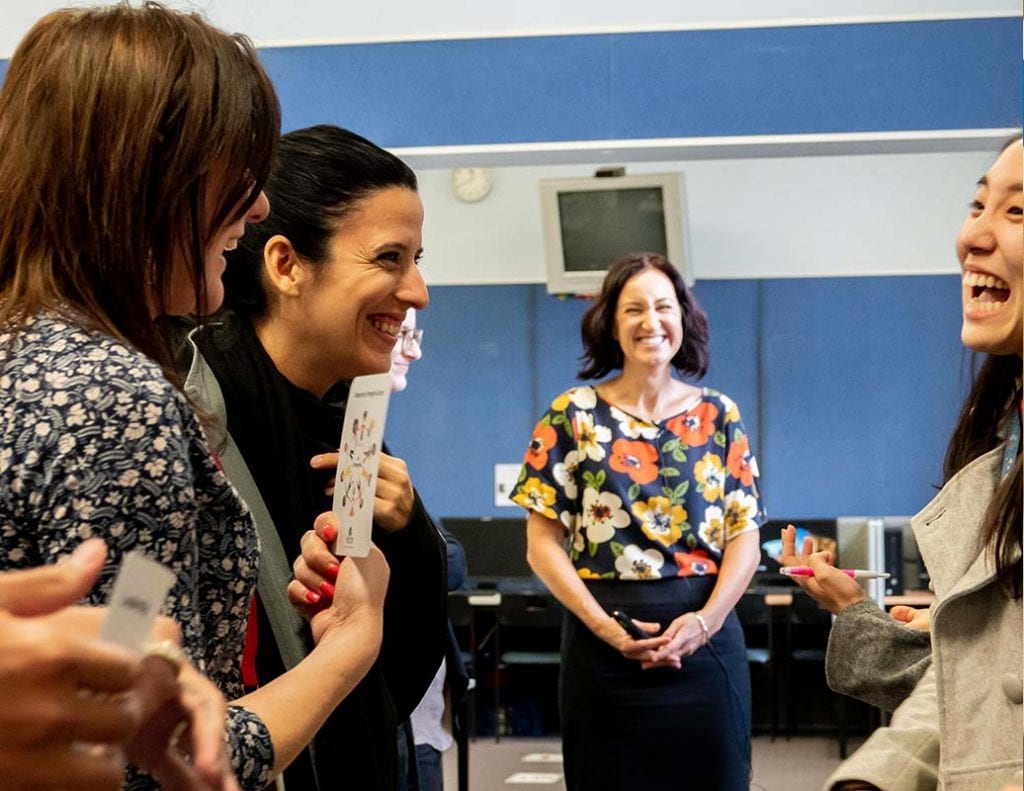

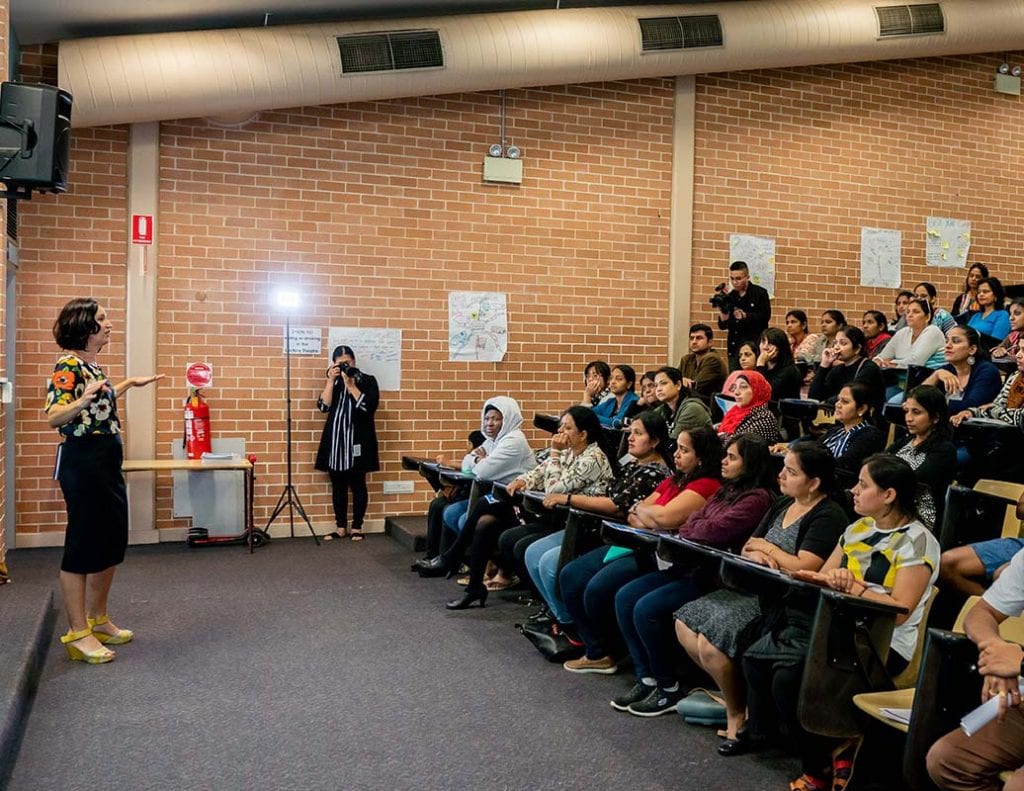
Belonging Being & Becoming: The Early Years Learning Framework for Australia
Strong Minds – Early Years will allow educators to maximise the potential of the children in their care. A strength based approach builds relationships, enhancing children’s sense of belonging. Spotting strengths in oneself and each other encourages children to know themselves and be in the present. Finally, children understanding their unique strengths and learning to develop these as they grow enhances their sense of becoming.
Strong Minds – Early Years support the five learning outcomes:
- Children have a strong sense of identity – they learn to identify their own unique strengths
- Children are connected with and contribute to their world – they learn that using their strengths benefits others, helping them to ‘do good’ in the community
- Children have a strong sense of wellbeing – using your strengths increases wellbeing
- Children are confident and involved learners – strengths enhance our confidence
- Children are effective communicators – strengths provide students with a common language
Background
Overview
Strong Minds – Early Years utilises empirically supported Positive Psychology strategies that enhance wellbeing and learning. The primary focus of this is on Peterson and Seligman’s (2004) 24 character strengths. These are categorised under six virtues: Wisdom, Courage, Kindness, Community, Self-Control and Meaning.
This approach targets whole centre communities to foster a culture of resilience.
Aims
The package specifically aims to assist children, educators and parents to identify and grow their own strengths, in addition to recognising and appreciating strengths in others. This builds relationships, self-esteem, and a positive environment, fostering inclusivity and resilience.
STRONG MINDS – EARLY YEARS RESOURCES
- 3 x 24 character strength instructional poster sets
- 3 x A2 Character Strength posters
- A Staff Character Strength Tree
- 3 x 24 strength cards
- Extensive Strong Minds -Early Years resources for educators, children and families
EDUCATOR PROFESSIONAL DEVELOPMENT
The package includes:
- 1.5 hour staff professional development provided in video format. Staff will learn: how to identify, develop and spot character strengths in themselves, colleagues and children; how to build relationships with strengths; and enhance children’s wellbeing literacy.
INFORMATION FOR PARENTS/CARERS
Extensive resources are provided for staff and families. Parents and carers learn about a Strength-Based Approach, including how they can utilise the strength language in the home. Centres have the option of running a 1 hour parenting session utilising Strength Based Parenting videos provided.
Research indicates that Strength Based Parenting reduces stress levels in children and increases their ability to cope 11.Specific resources on gratitude, kindness, Growth Mindset and mindfulness are also provided.
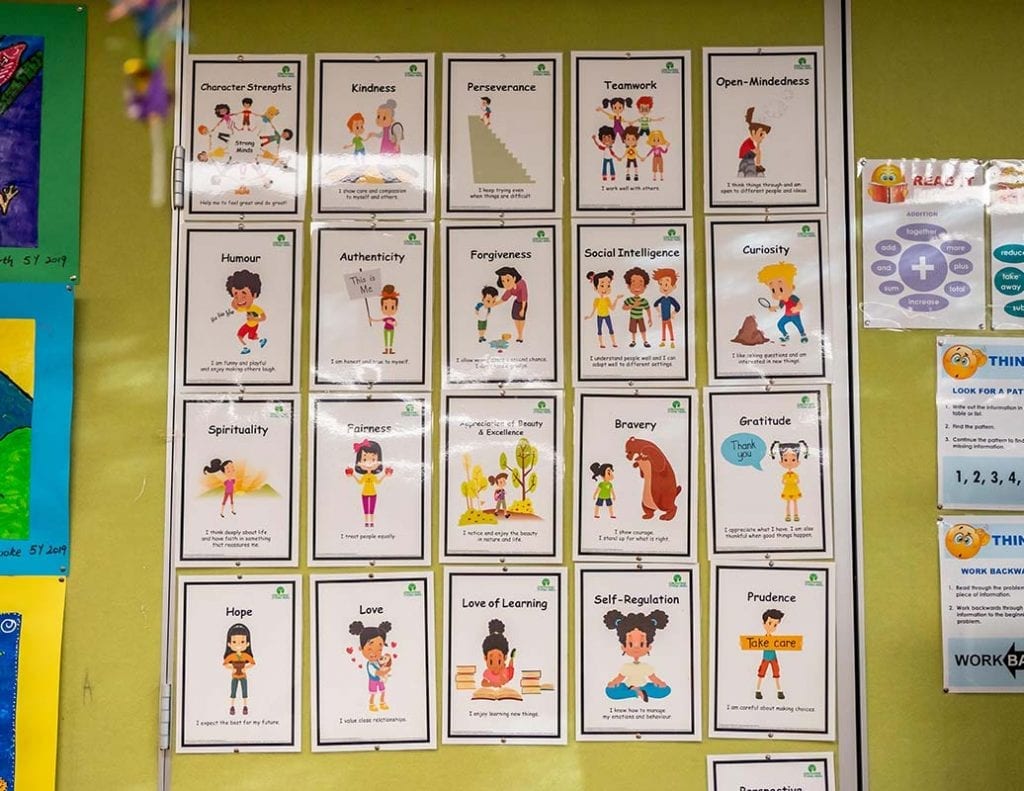
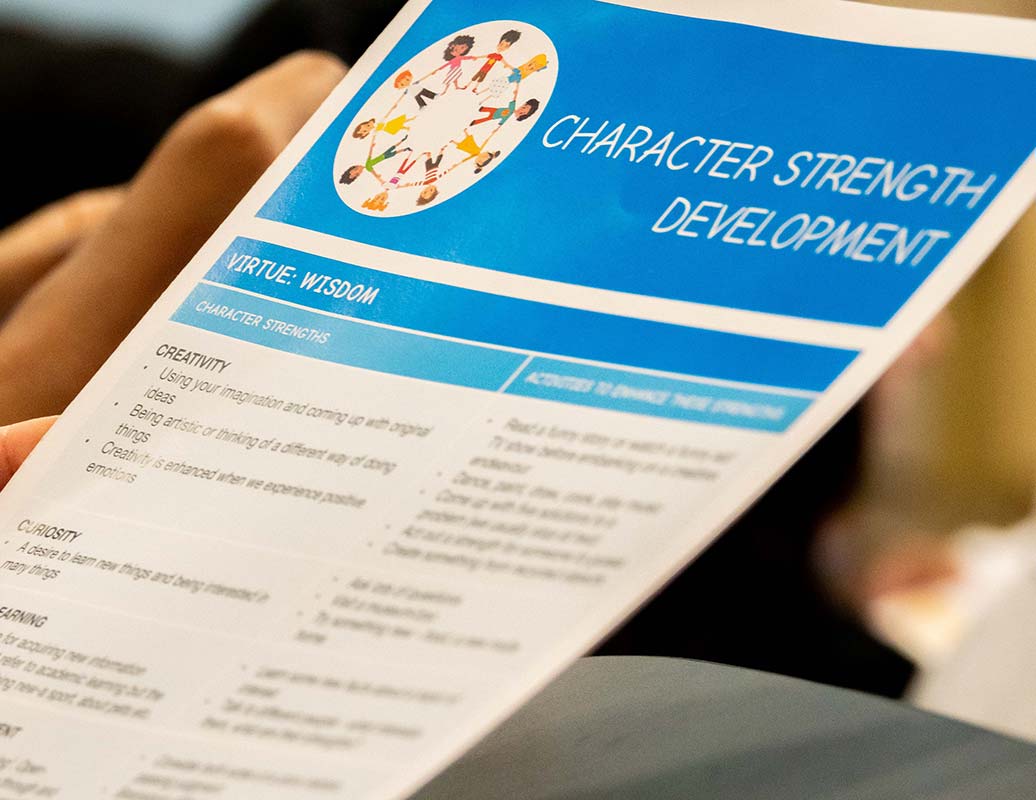
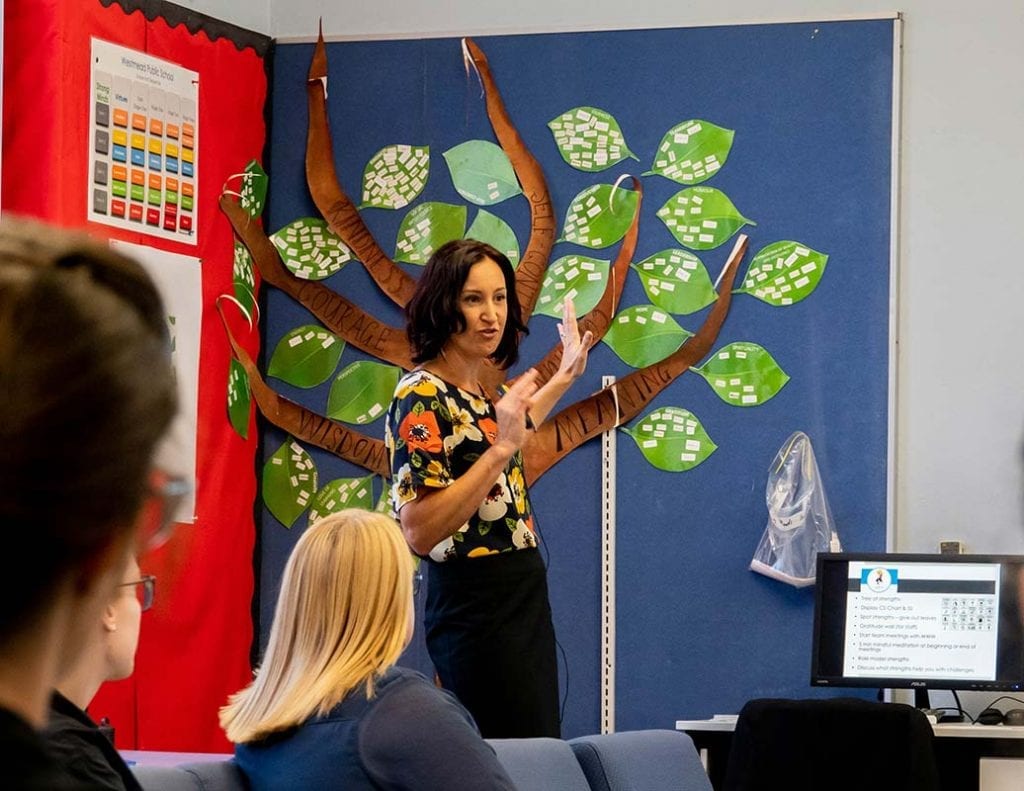
RESEARCH
- When we work with our strengths we:
- Perform better 1
- Have greater self-esteem and vitality 2.
- Increased subjective wellbeing 3. and
- Are more resilient 4.
- Those that know and use their strengths effectively are more likely to be successful and have better self-discipline. Self-discipline predicts academic success better than IQ 5.
- Character education is positively related to academic achievement 6. and learning confidence in primary school students 7
- Character strengths are linked to wellbeing and flourishing amongst children and youth 8.
- Character strengths enhance engagement 9. Research found that employees who utilised their strengths at work were six times more likely to be engaged in their work 10.
- Strength Based Parenting reduces stress levels in children and increases their ability to cope 11.
- Character strengths enhance flourishing – research found that those who were aware of their strengths were 9 times more likely to be flourishing than those that were not aware 12.
Growing Strong Minds Testimonials
Find out about how participants of the Growing Strong Minds workshop have enjoyed their experience.
